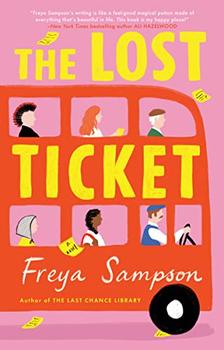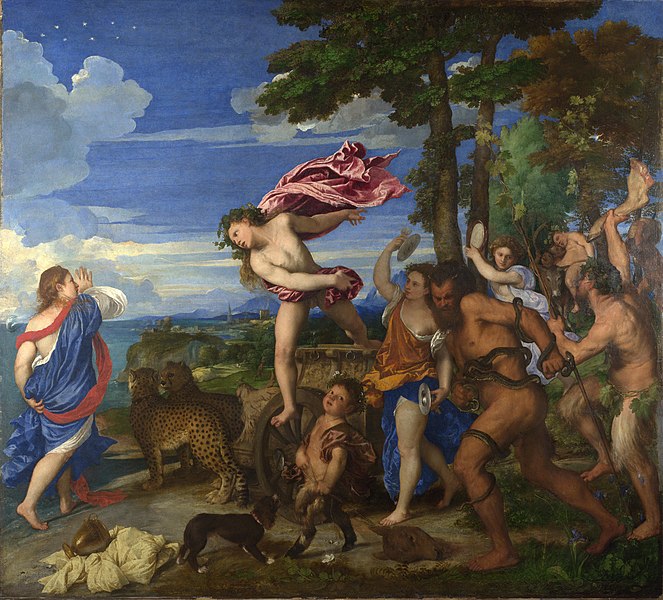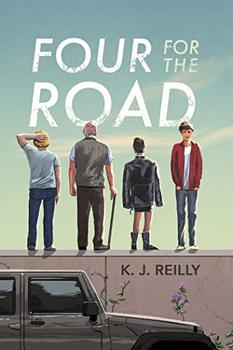Summary | Excerpt | Reviews | Beyond the book | Read-Alikes | Genres & Themes | Author Bio

Strangers on a London bus unite to help an elderly man find his missed love connection in the heartwarming new novel from the acclaimed author of The Last Chance Library.
When Libby Nicholls arrives in London, brokenhearted and with her life in tatters, the first person she meets on the bus is elderly Frank. He tells her about the time in 1962 that he met a girl on the number 88 bus with beautiful red hair just like hers. They made plans for a date at the National Gallery art museum, but Frank lost the bus ticket with her number on it. For the past sixty years, he's ridden the same bus trying to find her, but with no luck.
Libby is inspired to action and, with the help of an unlikely companion, she papers the bus route with posters advertising their search. Libby begins to open her guarded heart to new friendships and a budding romance, as her tightly controlled world expands. But with Frank's dementia progressing quickly, their chance of finding the girl on the 88 bus is slipping away.
More than anything, Libby wants Frank to see his lost love one more time. But their quest also shows Libby just how important it is to embrace her own chances for happiness—before it's too late—in a beautifully uplifting novel about how a shared common experience among strangers can transform lives in the most marvelous ways.
Chapter 1
April 2022
"This is the 88 to Parliament Hill Fields."
The electronic announcement rang round the bus as Libby heaved her two rucksacks on board. There was a queue of passengers behind her, and she heard an impatient tut as she rummaged in her handbag to find her wallet. Finally she located it and tapped her card to pay, but not before she heard someone mutter, "Bloody tourist." Libby hurriedly scooped up her bags and began to maneuver toward the one free seat on the lower deck, but she'd gone only a few paces when a teenage boy pushed past, almost knocking her into the lap of an elderly woman, and threw himself into the vacant seat.
Libby gave the boy her best death stare, then turned and climbed the narrow stairs toward the front of the upper deck, clinging to the handrail so she didn't fall as the bus swerved out of Vauxhall Station. When she reached the top, she was relieved to see that the nearest seats in the first row were available, and she dumped her bags on the ...
A quirky commercial take on a coming-of-age story and travel narrative, The Lost Ticket at its core is about trusting one's nonlinear path to happiness and self-acceptance, as well as discovering the true value of kindness. Sampson's novel is a balancing act of humor and heartbreak that makes a cathartic comfort read for anybody who enjoys stories of compassion. The most compelling part of The Lost Ticket to me is how Sampson writes certain types of characters who are not usually at the center of a fictional narrative. Though the story is mainly told from Libby's perspective, the novel also devotes significant page time to Frank and a woman in her 80s who is at first unnamed. An important theme Sampson explores through these characters is how people may infantilize seniors, and how families may deprioritize quality time with them. Alongside discussion of diseases associated with aging, this is one of the saddest subjects in the novel, but Sampson tackles both themes with grace by championing these voices and making them vital pieces of the narrative...continued
Full Review
(893 words)
This review is available to non-members for a limited time. For full access,
become a member today.
(Reviewed by Lisa Ahima).
 Ali Hazelwood, New York Times bestselling author of The Love Hypothesis
Freya Sampson's writing is like a feel-good magical potion made of everything that's beautiful in life: a hug, a cup of tea, a warm blanket, a puppy. The Lost Ticket is the perfect sophomore novel: the descriptions of London are whimsical and immersive; the characters are relatable and lovable; the story is uplifting and romantic, full of emotions and heart, celebrating the importance of making human connections and embracing our dreams. This book is my happy place! Whatever Freya writes next, I'm on board.
Ali Hazelwood, New York Times bestselling author of The Love Hypothesis
Freya Sampson's writing is like a feel-good magical potion made of everything that's beautiful in life: a hug, a cup of tea, a warm blanket, a puppy. The Lost Ticket is the perfect sophomore novel: the descriptions of London are whimsical and immersive; the characters are relatable and lovable; the story is uplifting and romantic, full of emotions and heart, celebrating the importance of making human connections and embracing our dreams. This book is my happy place! Whatever Freya writes next, I'm on board. India Holton, national bestselling author of The Wisteria Society of Lady Scoundrels
The Lost Ticket is one of the loveliest novels I've read. Gorgeously written, it's brimming over with hope, inspiration, and endearing humour. I completely adored this wonderful, warm hug of a book.
India Holton, national bestselling author of The Wisteria Society of Lady Scoundrels
The Lost Ticket is one of the loveliest novels I've read. Gorgeously written, it's brimming over with hope, inspiration, and endearing humour. I completely adored this wonderful, warm hug of a book. Jesse Q. Sutanto, national bestselling author of Four Aunties and a Wedding
It's hard to think of another book quite as delightful as this one. The Lost Ticket is basically the best hug in the world in book form. It's a story about love and second chances and the best kind of unlikely friendships. Pick up this book if you're yearning for some joy in your life!
Jesse Q. Sutanto, national bestselling author of Four Aunties and a Wedding
It's hard to think of another book quite as delightful as this one. The Lost Ticket is basically the best hug in the world in book form. It's a story about love and second chances and the best kind of unlikely friendships. Pick up this book if you're yearning for some joy in your life! In Freya Sampson's novel The Lost Ticket, Titian's Bacchus and Ariadne is a central motif. The painting first comes up in a conversation between the character Frank and an admirer he encounters on the London 88 bus, and it continues to reflect relationships between characters throughout. The mythological relationship between Bacchus and Ariadne, as shown in the painting, symbolizes how love between two people can have an immortal quality. Knowing the mythology behind this work of art can provide a deeper understanding of how love is portrayed in the novel.
In Freya Sampson's novel The Lost Ticket, Titian's Bacchus and Ariadne is a central motif. The painting first comes up in a conversation between the character Frank and an admirer he encounters on the London 88 bus, and it continues to reflect relationships between characters throughout. The mythological relationship between Bacchus and Ariadne, as shown in the painting, symbolizes how love between two people can have an immortal quality. Knowing the mythology behind this work of art can provide a deeper understanding of how love is portrayed in the novel.
First, if you aren't well-versed in Greek mythology, you might be wondering exactly who Bacchus and Ariadne are. Ariadne, a goddess of fertility, is mainly known for her critical ...
This "beyond the book" feature is available to non-members for a limited time. Join today for full access.

If you liked The Lost Ticket, try these:

The Very Long, Very Strange Life of Isaac Dahl
by Bart Yates
Published 2024
Both sweeping and exquisitely intimate, award-winning author Bart Yates blends historical fact and fiction in a surprising, thought-provoking saga spanning 12 significant days across nearly 100 years in the life of a single man, beginning in 1920s Utah.

by K J. Reilly
Published 2023
The Perks of Being a Wallflower meets The End of the F***ing World in this dark young adult comedy about four unlikely friends dealing with the messy side of grief who embark on a road trip to Graceland.




We have to abandon the idea that schooling is something restricted to youth...
Click Here to find out who said this, as well as discovering other famous literary quotes!